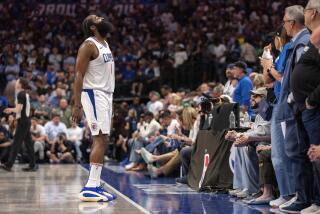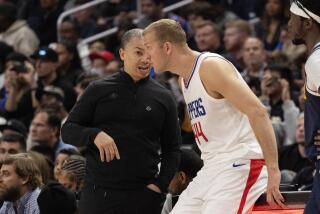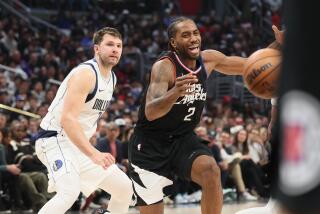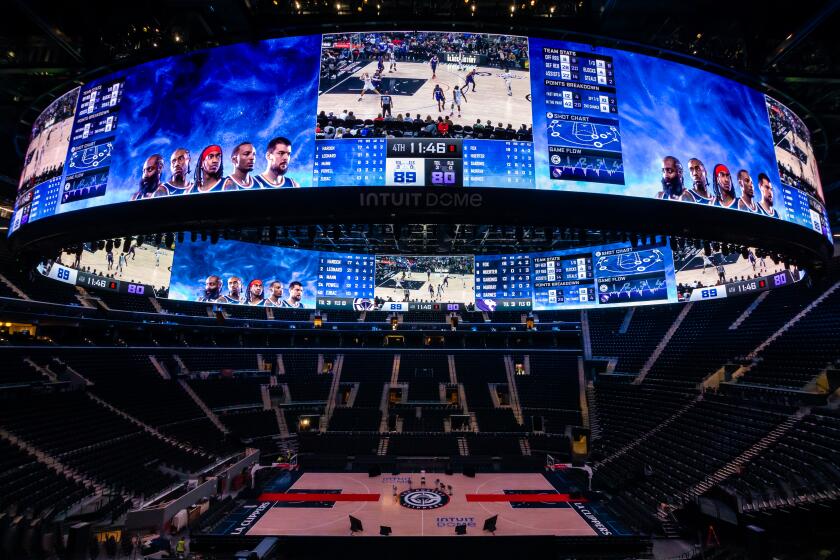Clippers, Rockets on same page in regard to intentional fouls
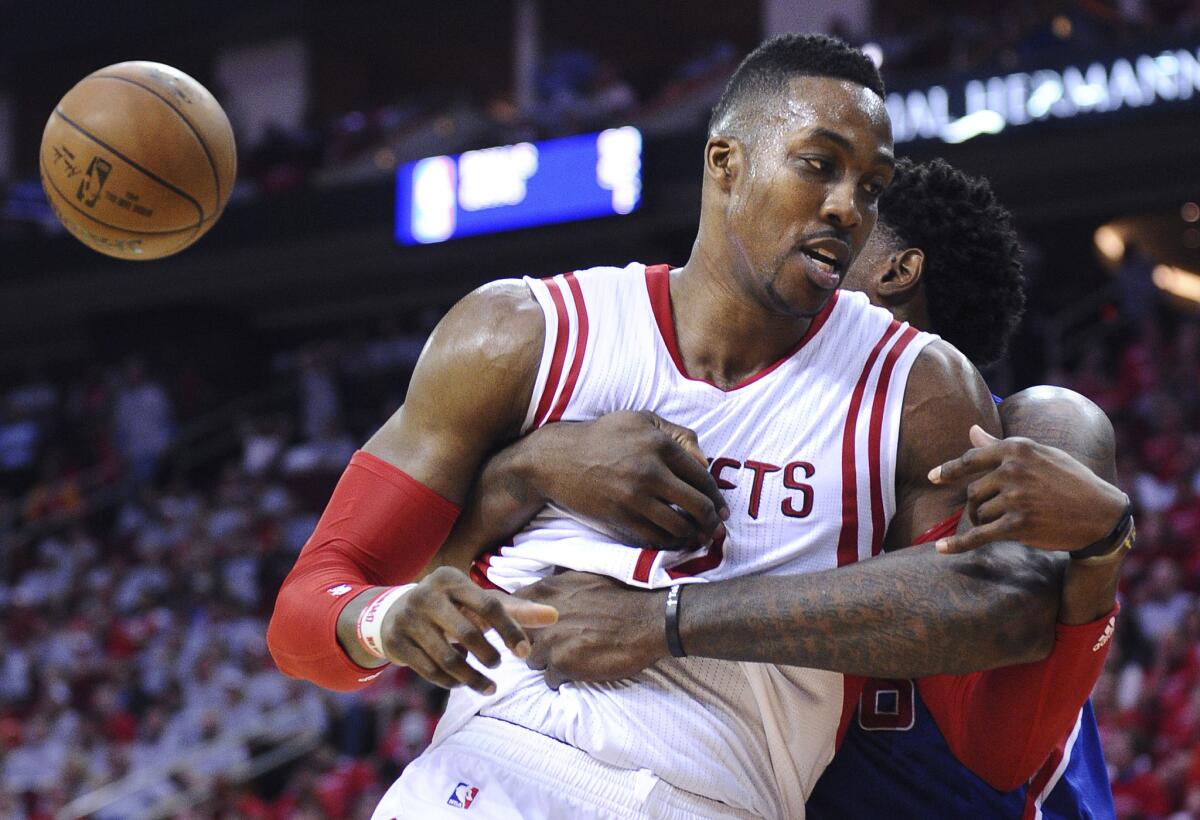
Reporting from HOUSTON — Doc Rivers joked that he and Houston Rockets counterpart Kevin McHale had figured out how they would handle the possibility of the Western Conference semifinals getting mucked up by too many intentional fouls.
“Kevin and I have the truce going of it will be the ‘no hack-a-series,’” Rivers, the Clippers coach, said before Game 1 on Monday night at Toyota Center, “or it will be ‘all-hacka-series.’”
McHale was asked whether this was true.
“Semi-hack,” he said.
That was about right. The strategy was occasionally used by both teams throughout the Clippers’ 117-101 victory before they ensured it was not an option in the final minutes.
Houston’s Dwight Howard and the Clippers’ DeAndre Jordan were both off the court for a stretch in the fourth quarter for fear of them going to the free-throw line.
The Rockets had intentionally fouled Jordan with 2 minutes 53 seconds left and he made both free throws before the Clippers responded by twice fouling Howard, who made one of four tries before leaving the game.
The Clippers were the initial aggressors with the strategy, sending Houston’s Josh Smith to the free-throw line late in the second quarter and watching Smith make one of two free throws. The Rockets then intentionally fouled Jordan, pleasing a crowd that roared with approval.
Jordan missed both of his tries but the Clippers wouldn’t let it end there, intentionally fouling Howard with 15 seconds left before halftime. Howard split his free throws.
The Rockets fouled Jordan again late in the third quarter and he made one of two free throws before Rivers removed Jordan in favor of Glen Davis.
The Clippers had the deterrent of having three players they could foul in retaliation for fouls on Jordan: Howard (a 52.8% free-throw shooter during the regular season), Smith (52.1%) and Terrence Jones (60.6%).
Rivers broke out a Cold War analogy before the game in explaining why there might not be intentional fouls.
“If we had second-strike capability, then usually no one uses the bomb,” Rivers said. “The way I look at it, we both have the capability of fouling and hopefully it neutralizes it so we can have a game.”
The San Antonio Spurs made fouling Jordan a habit during the first round, with mixed success. Jordan made 25 of 62 free throws (40.3%) while being intentionally fouled, but the Spurs were occasionally taken out of their rhythm and the Clippers actually netted seven points in those situations.
Jordan said Howard, a longtime friend whom Jordan has known since high school, had previously advised him on dealing with intentional fouls.
“Just to go up there and shoot your free throws, you know what I mean?” Jordan said before the game. “Nobody can shoot them for you. You can’t call in a DH in a game like that. You have to be able to go out there and shoot them, but I don’t think that will happen this series. If so, the games will be five hours long.”
Etc.
Jordan Hamilton was active for the Clippers for the first time in the playoffs with point guard Chris Paul sidelined because of a strained left hamstring. Hamilton did not play. … Paul finished sixth and Blake Griffin ninth in voting for the NBA most valuable player. … Jordan, a Houston native, said he expected about 40 friends and family to attend Game 1. Did Jordan have a favorite Rocket growing up? “Sam Cassell,” Jordan said, referring to the Clippers assistant coach.
Twitter: @latbbolch
More to Read
Get our high school sports newsletter
Prep Rally is devoted to the SoCal high school sports experience, bringing you scores, stories and a behind-the-scenes look at what makes prep sports so popular.
You may occasionally receive promotional content from the Los Angeles Times.

